Tag: Health
-
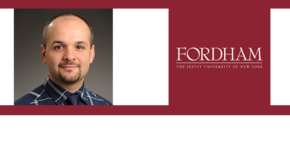
Garrett Broad, Fordham University – What Is Meat?
Another form of alternative meat might be on the horizon. Garrett Broad, assistant professor in the department of communication and media studies at Fordham University, looks into its origins. Garrett M. Broad is an Assistant Professor in the Department of Communication and Media Studies at Fordham University in New York City. His research investigates the…
-
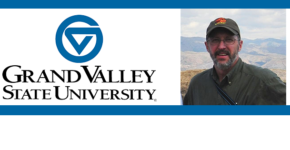
Peter Wampler, Grand Valley State University – Water Treatment in Haiti
On Grand Valley State University Week: Safe drinking water is a big issue in Haiti. Peter Wampler, professor of geology, explores how to make it safer. Dr. Peter Wampler is a broadly trained environmental geologist, geomorphologist, and surface water hydrologist with a background in both academic and government regulation of mining and storm water. He…
-
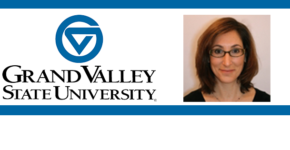
Karen Zivi, Grand Valley State Week – Menstrual Activism
On Grand Valley State University Week: Menstruation is still a taboo subject. Karen Zivi, associate professor of political science, looks into how this affects women in daily life. Karen Zivi is an Associate Professor of Political Science in the Frederik Meijer Honors College at Grand Valley State University in Allendale, Michigan where she teaches courses…
-
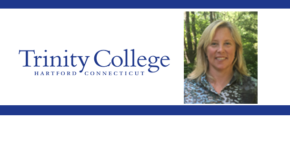
Susan Masino, Trinity College – Forests
Taking a walk in the woods can be good for brain health. Susan Masino, professor of applied science at Trinity College, explores why forests are important to our health. Dr. Masino is the Vernon Roosa Professor of Applied Science at Trinity College and a joint appointment in Neuroscience and Psychology. Her research focuses on promoting…
-
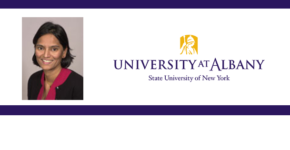
InduShobha Chengalur-Smith, University at Albany – The Reciprocity of Empathy in Online, Health-Based Communities
On University at Albany Week: Sometimes an online community is what you need to get through a tough time. InduShobha Chengalur-Smith, associate professor of information systems and business analytics, explores how relationships can help during these periods. InduShobha Chengalur-Smith is a faculty member in the Information Systems & Business Analytics department at the School of…
-
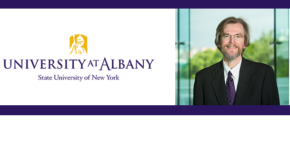
David Holtgrave, University at Albany – Reducing New HIV Infections
On University at Albany Week: How do we end the HIV epidemic? David Holtgrave, professor of health policy and behavior, discusses the latest effort. David Holtgrave, PhD, has served as the Dean of the School of Public Health, University at Albany, State University of New York since March, 2018. He is also appointed as a…
-
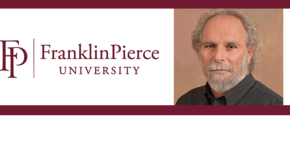
Allan Rachlin, Franklin Pierce University – American’s Quality of Life
Americans donate the most to charity. Allan Rachlin, associate professor of sociology at Franklin Pierce University, examines why we’re not at the top of other quality of life lists. Allan Rachlin is an associate professor of sociology at Franklin Pierce University in Rindge, N.H., where he teaches a popular undergraduate course on poverty and wealth…
-
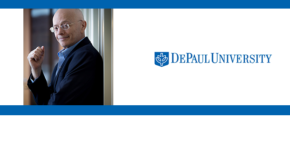
Leonard Jason, DePaul University – Chronic Fatigue Syndrome
Chronic fatigue syndrome is often dismissed as something just in your head. Leonard Jason, professor of clinical psychology at DePaul University, explores why this may need a rethink. Leonard Jason is a professor of clinical and community psychology in DePaul University’s College of Science and Health. He’s also the director of DePaul’s Center for Community…
-
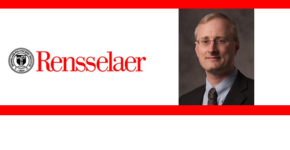
Juergen Hahn, Rensselaer Polytechnic Institute – Using Big Data To Evaluate Autism Treatments
On Rensselaer Polytechnic Institute Week: We need a new way to diagnose autism. Juergen Hahn, professor of biomedical engineering, looks to the blood to find a solution. Juergen Hahn is the department head of the Department of Biomedical Engineering at Rensselaer Polytechnic Institute in addition to holding an appointment in the Department of Chemical &…
-

Julie Walsh-Messinger, University of Dayton – Understanding Schizophrenia Through Smell
On University of Dayton Week: The nose may help us understand more about schizophrenia. Julie Walsh-Messinger, assistant professor of psychology at the University of Dayton, tells us more. Julie Walsh-Messinger is an assistant professor of psychology at the University of Dayton and a Licensed Psychologist in Ohio and New York. Her research broadly focuses on…
